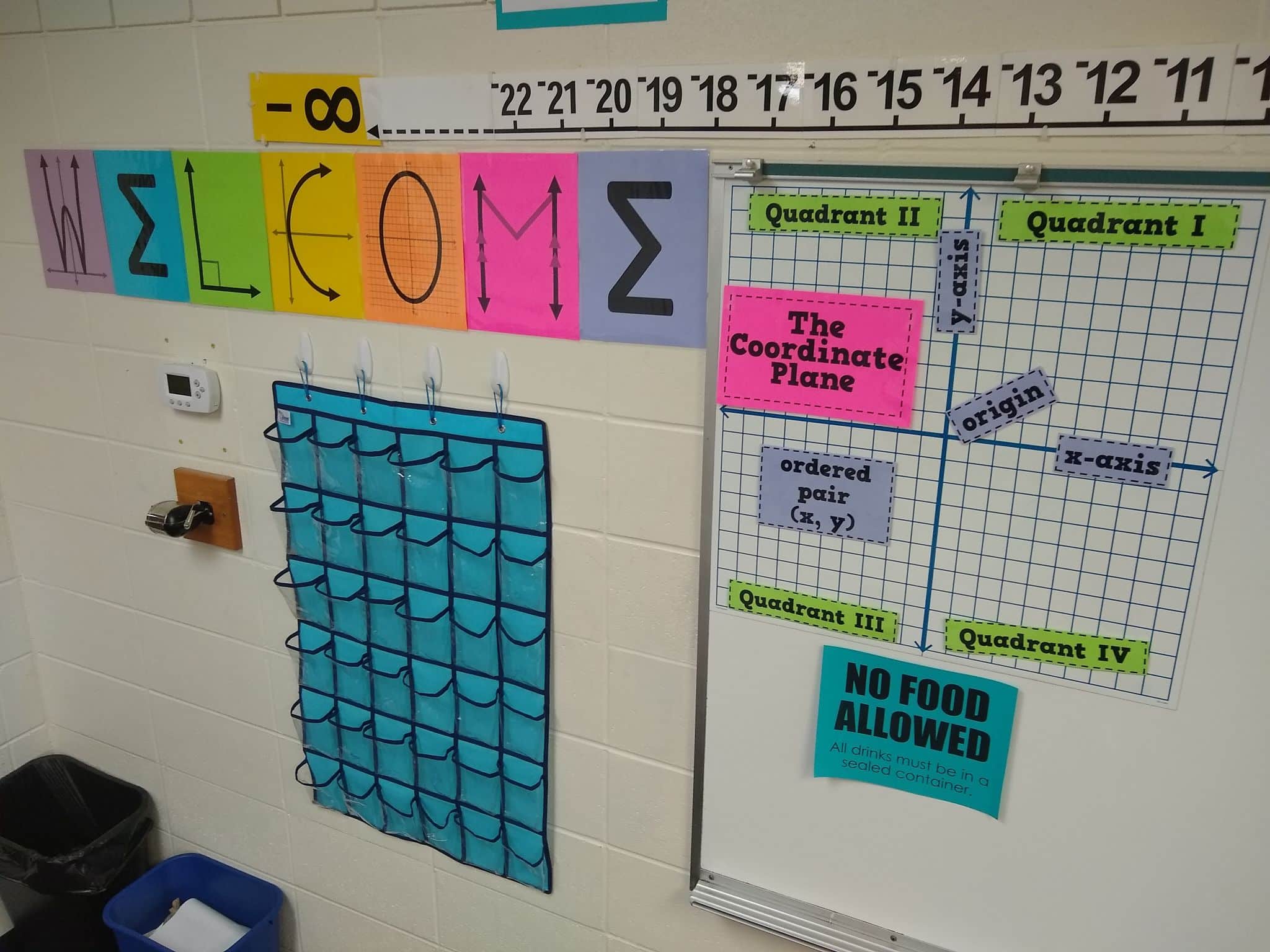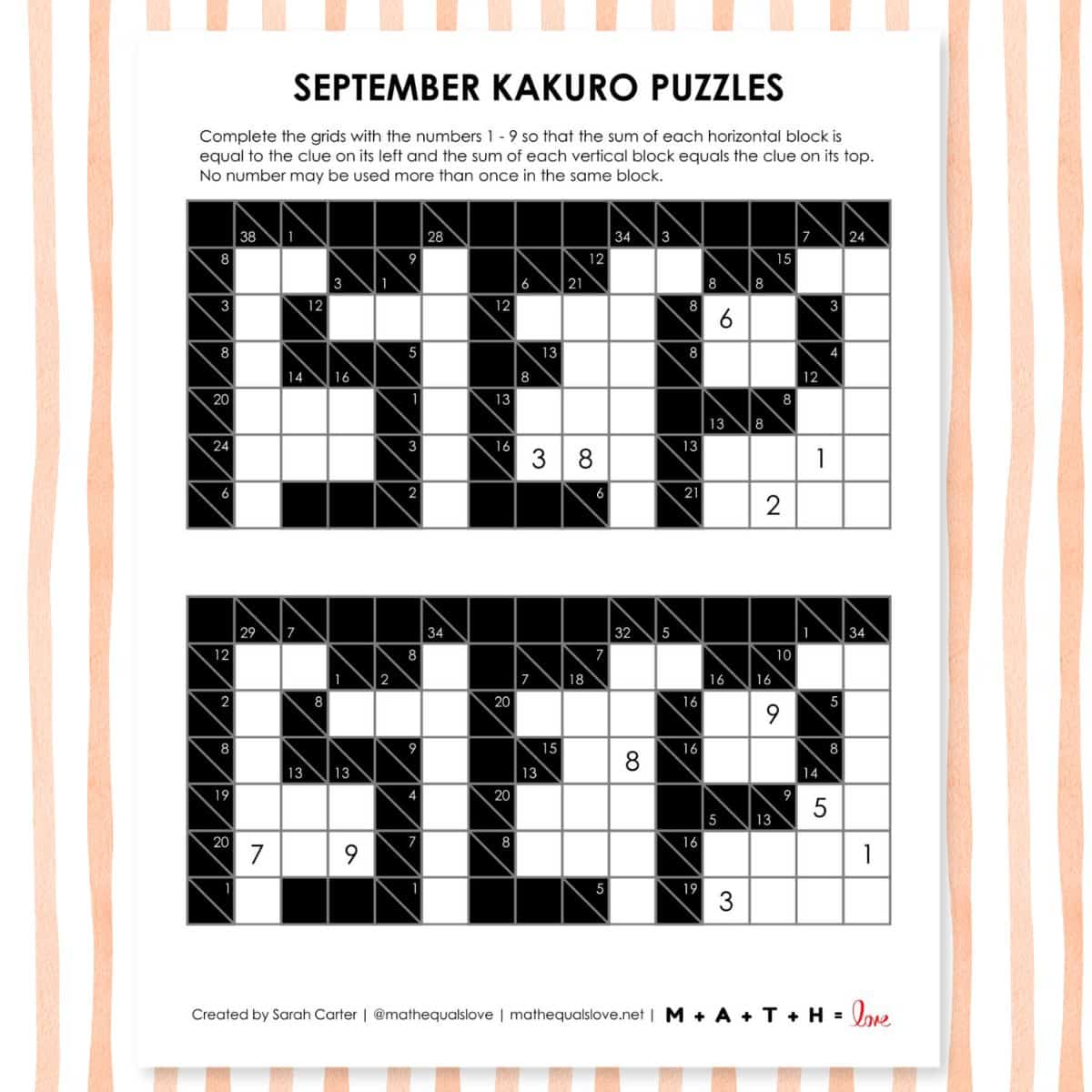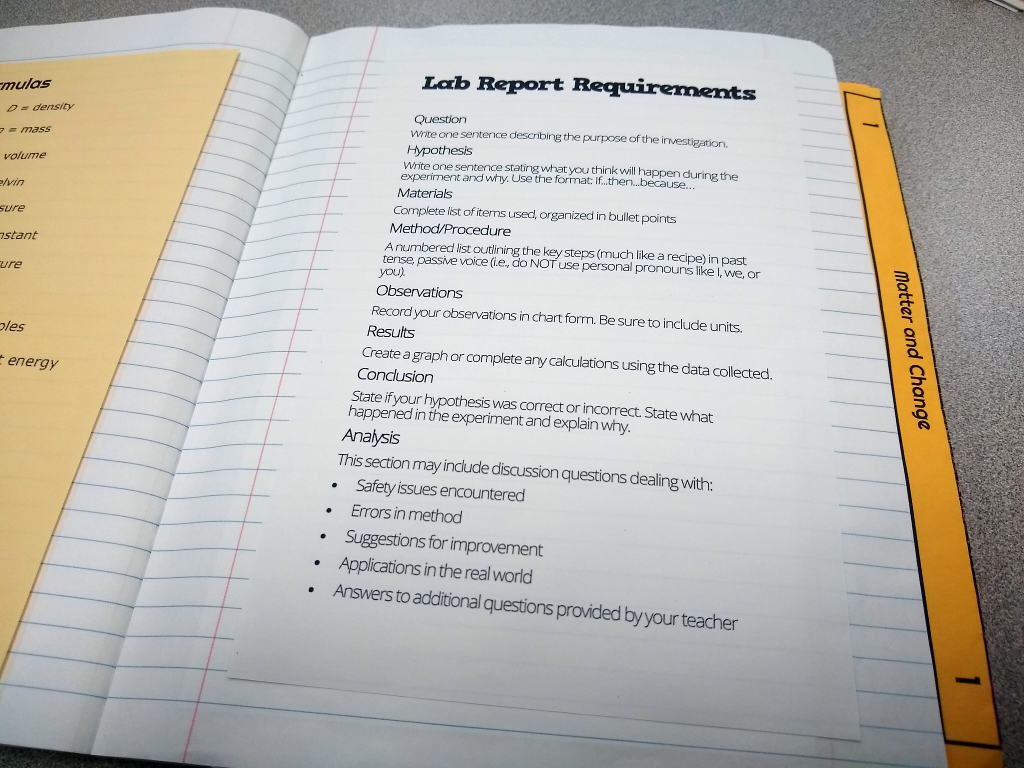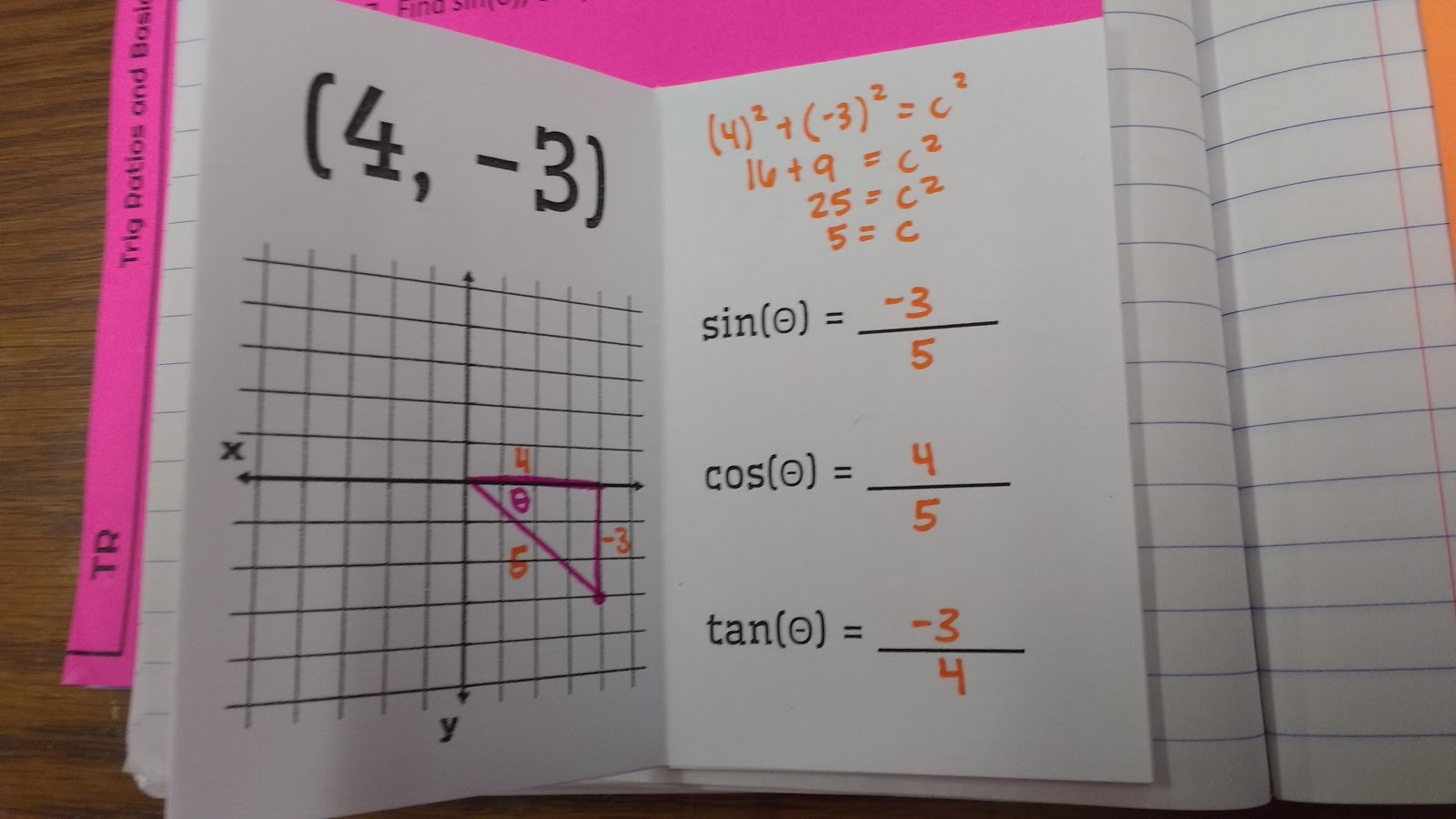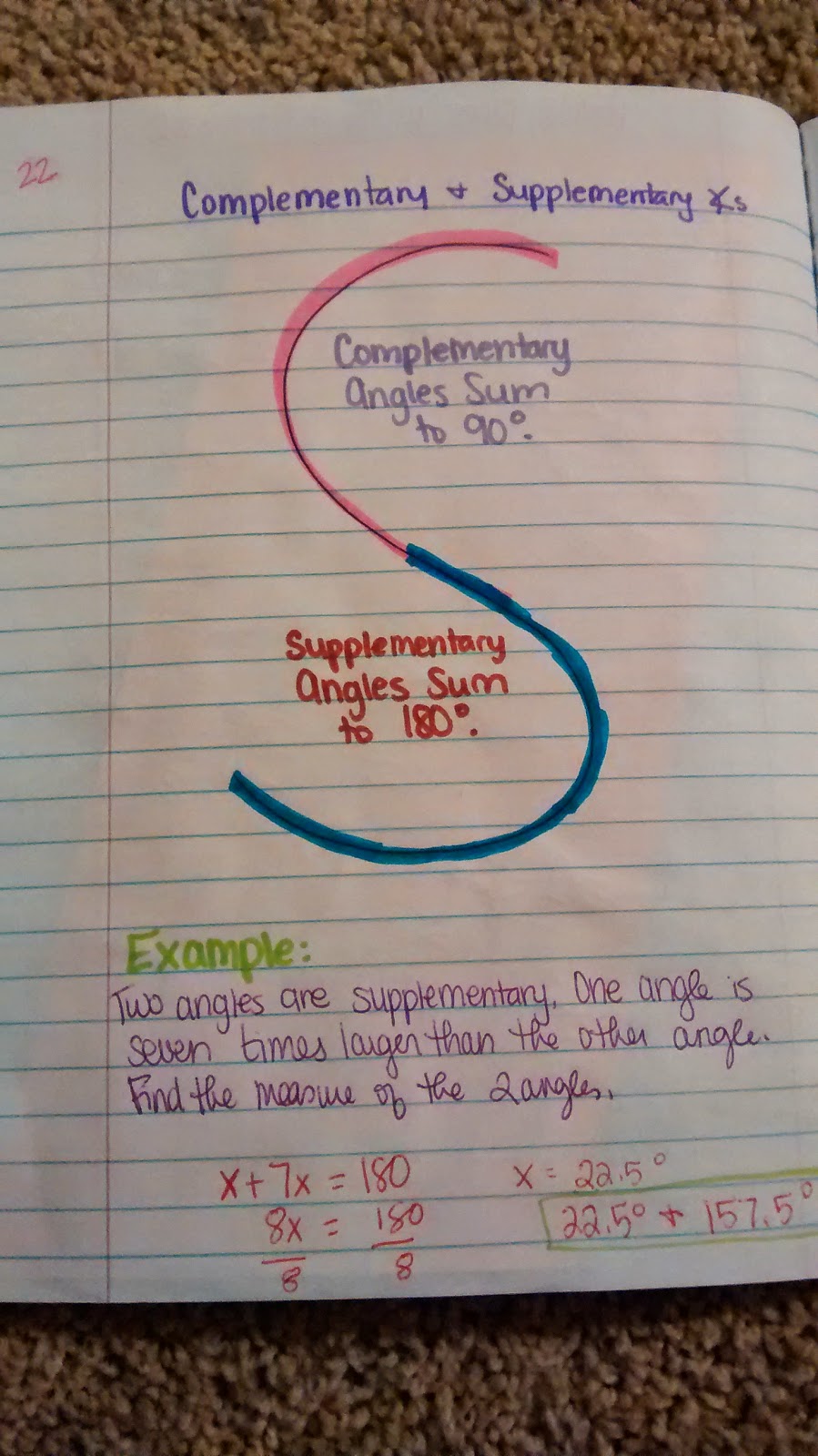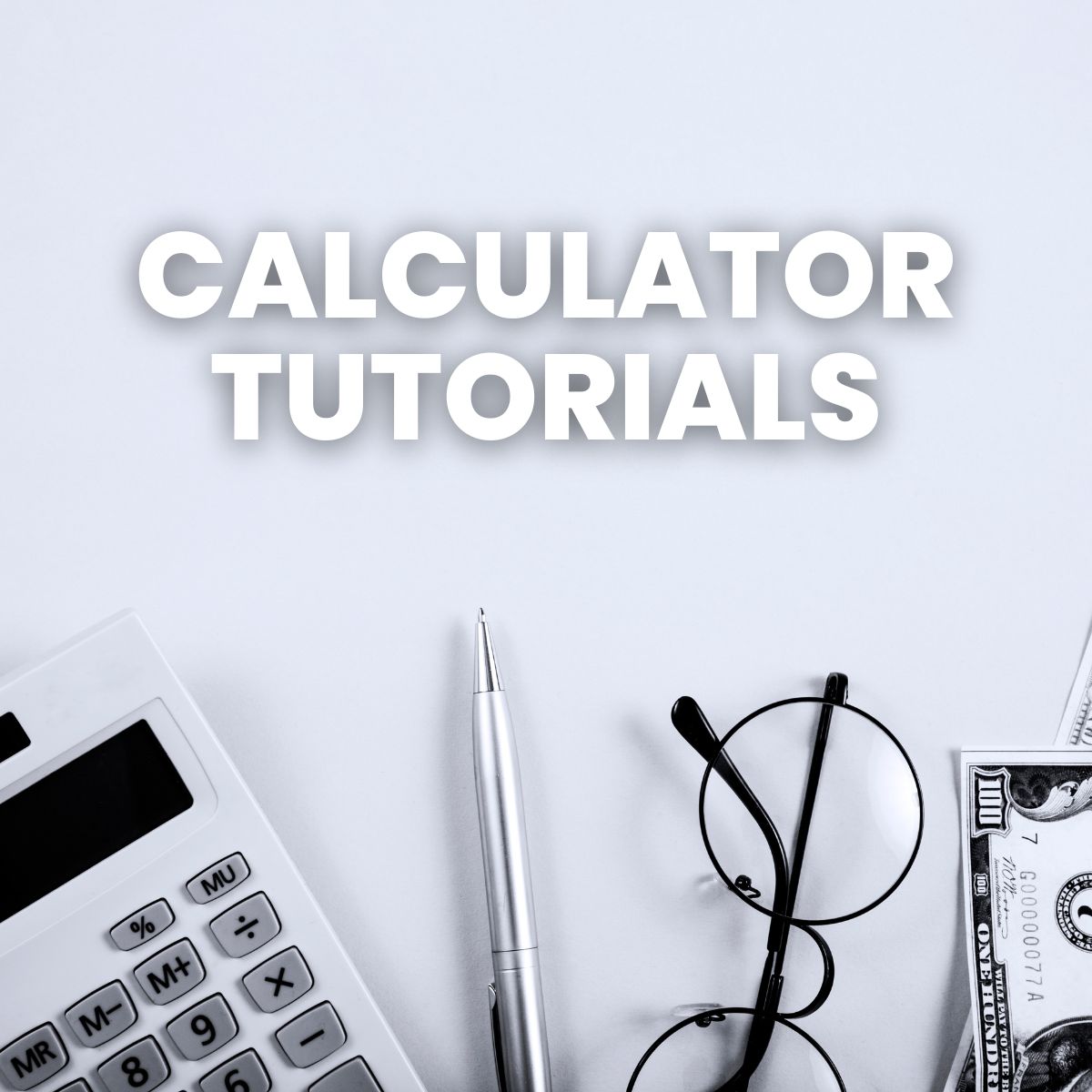Trig Reference Angles Activity: Odd One Out
This blog post contains Amazon affiliate links. As an Amazon Associate, I earn a small commission from qualifying purchases.
I created a new reference angles activity using the odd one out structure to give my trigonometry and precalculus students practice identifying the reference angle of a given angle in degrees.
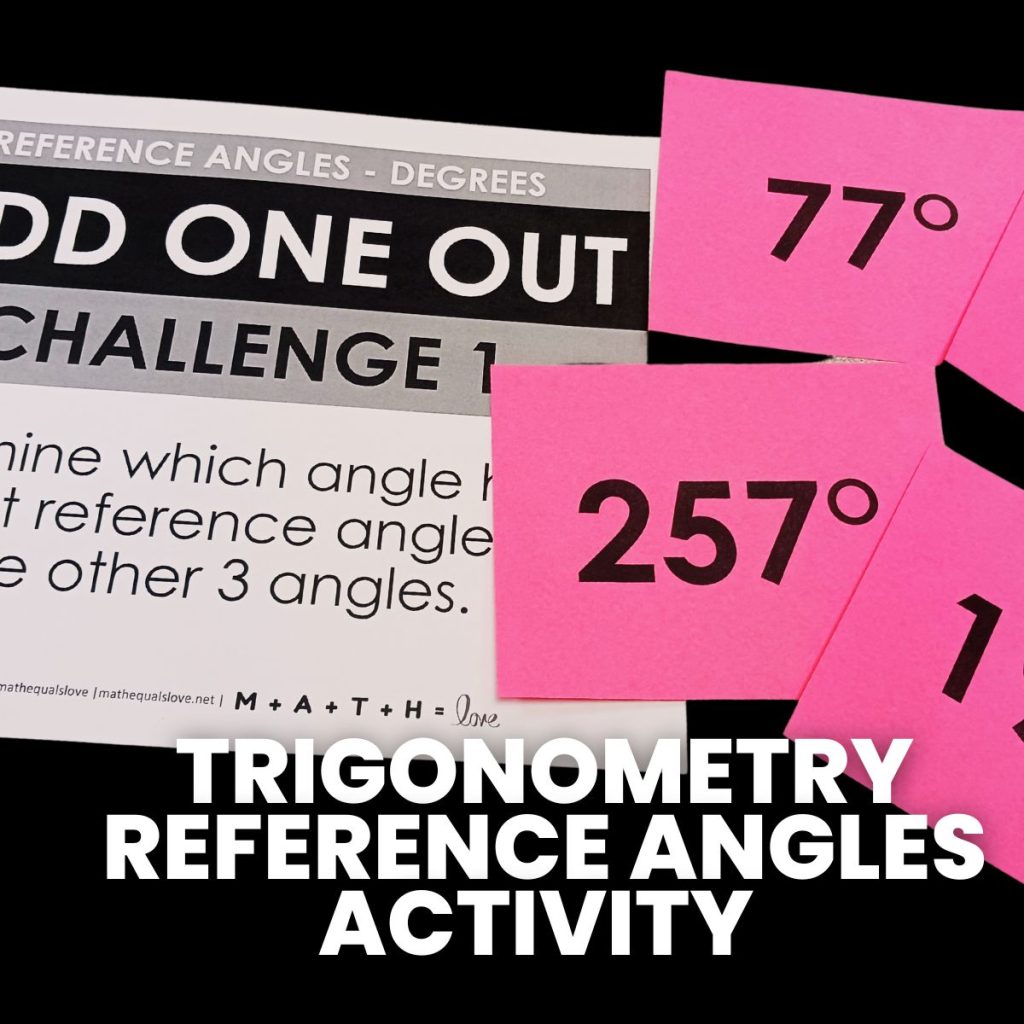
Reference Angles Activity Instructions
Determine which angle of the four given angles has a different reference angle than the other 3 angles. In other words, determine the “odd one out” that does not match the other 3 angles.
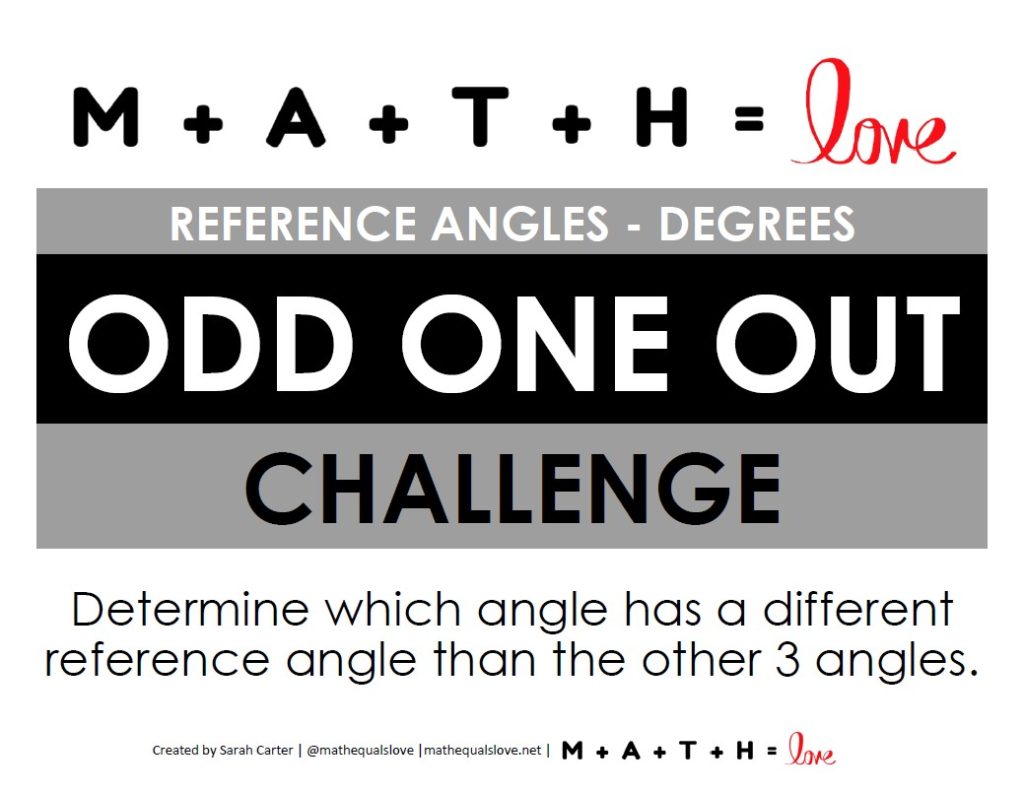
This activity is provided in four separate challenges. Each challenge has the same set of instructions: “Determine which angle has a different reference angle than the other 3 angles.”
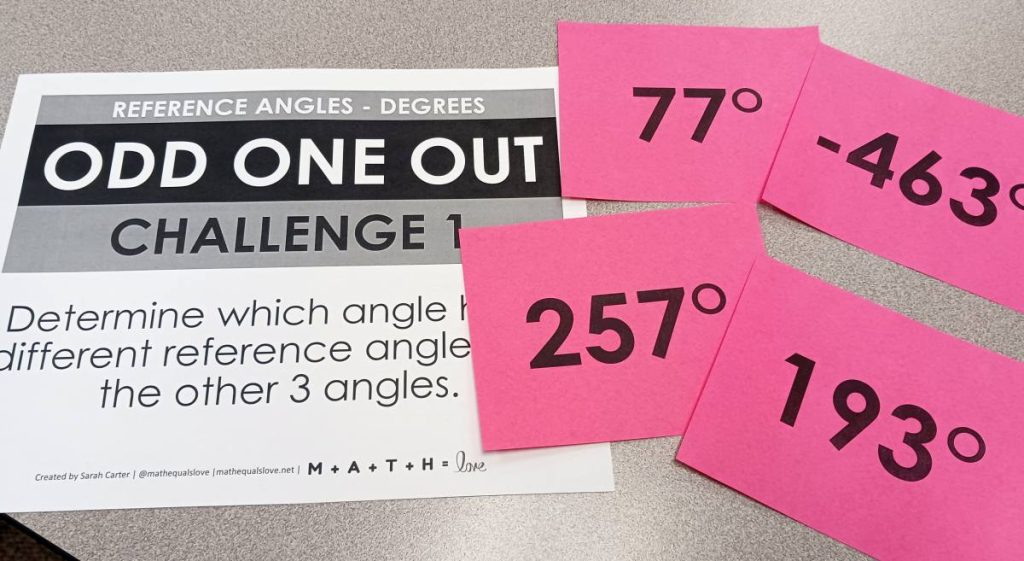
Students must determine which angle is the “odd one out.”
Students are provided cards with four different angle measures (in degrees) on them. Three of the four angles will have the exact same reference angle.
For example, in the photo above, 77 degrees has a reference angle of 77 degrees.
A 257 degree angle is 77 degrees from the x-axis, so it has a reference angle of 77 degrees. It is not the odd one out.
A 193 degree angle is 13 degrees from the x-axis, so it has a reference angle of 13 degrees. This must mean that 193 degrees is the odd one out.
Finally, a -463 angle is coterminal with 257 degrees, so it also has a 77 degree reference angle.
Printing and Prepping the Activity
I printed each of the four sets of problems in this reference angles activity on different colors of paper.
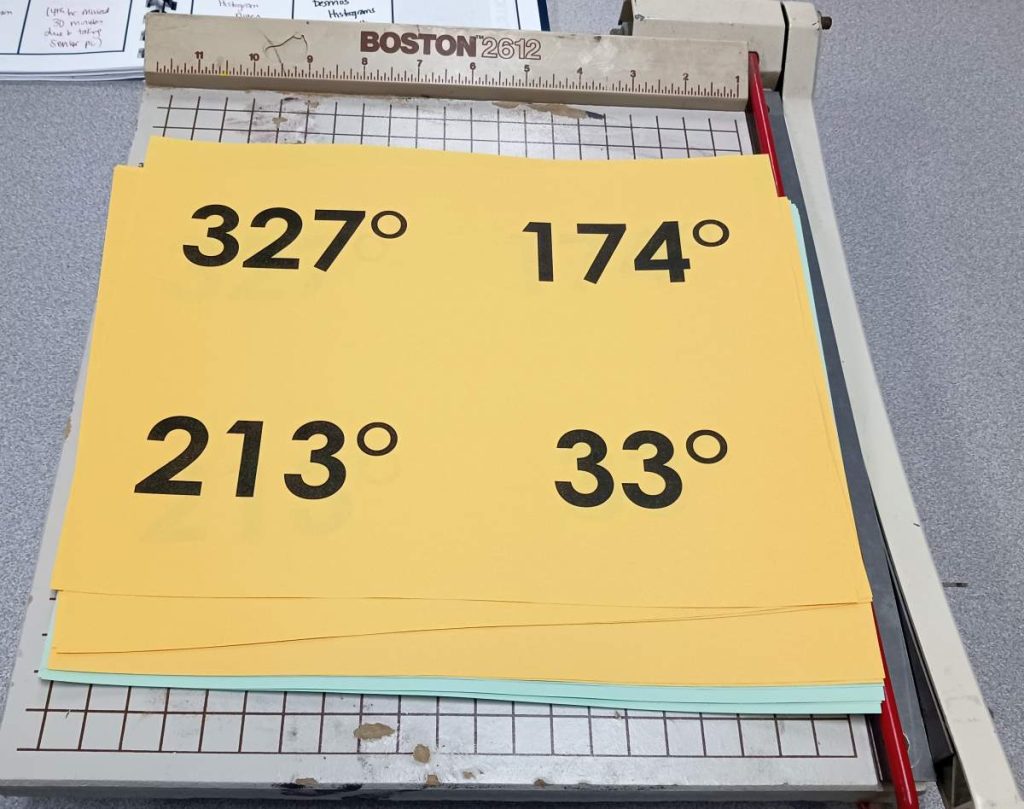
I used my handy dandy paper chopper to easily cut each page into fourths. I clipped the four resulting cards together with a paperclip. I did not bother printing this activity on cardstock or laminating it this time.
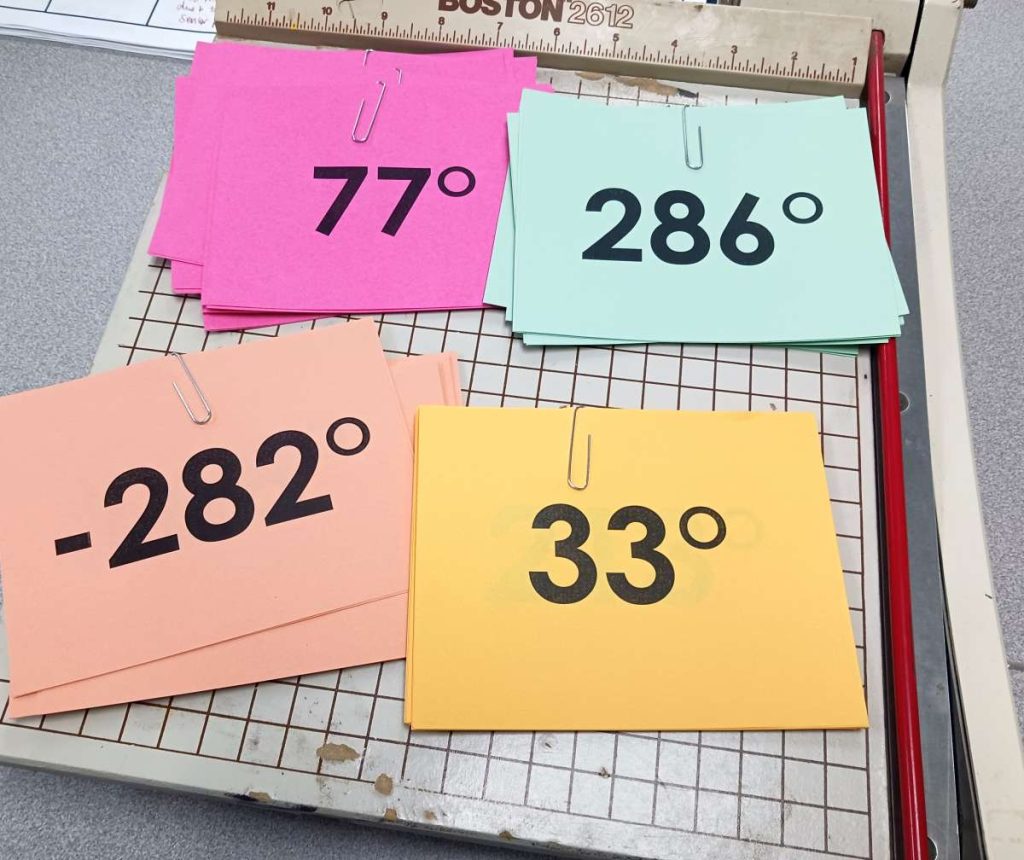
For my students, I chose to put each set of colored problems in one of my magnetic pockets.
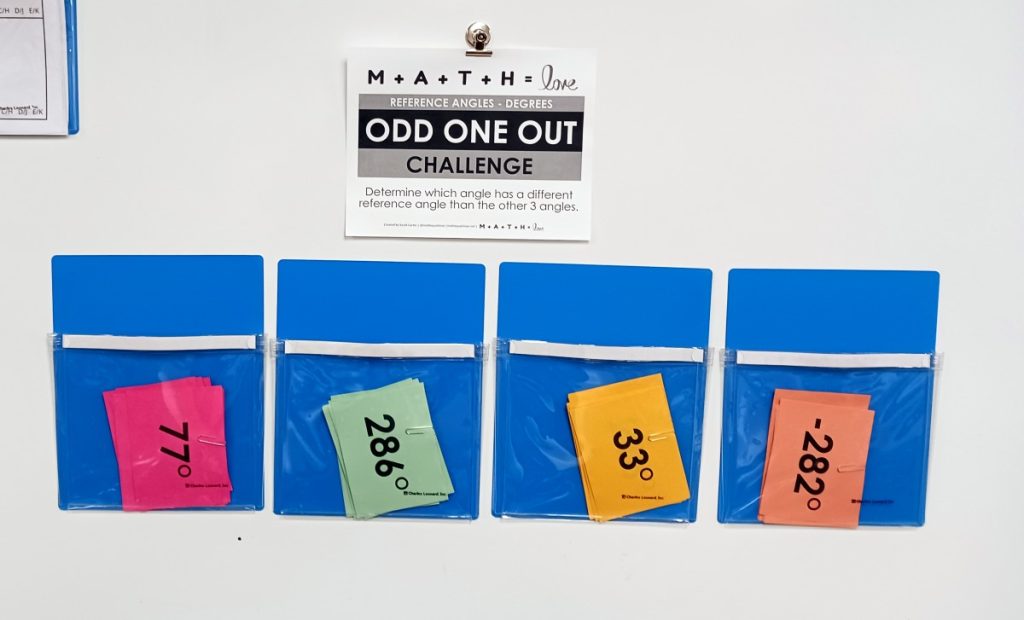
These magnetic pockets have been a true classroom lifesaver this past school year.
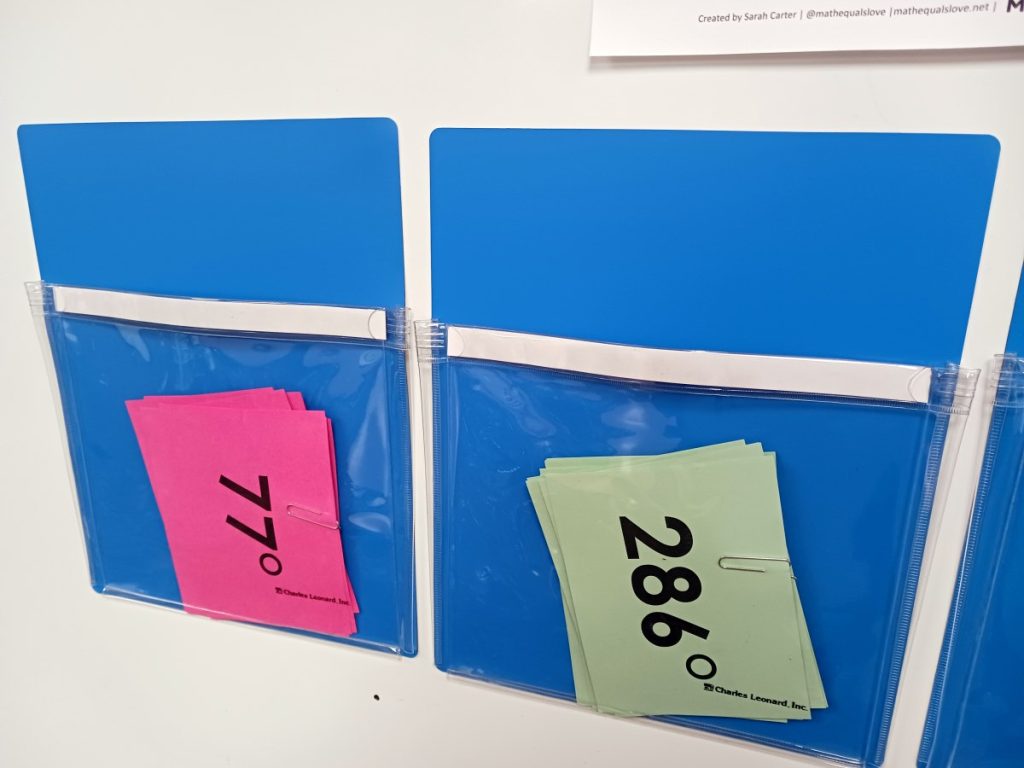
The entire back of the pouch is a single giant magnet, so they stick on the dry erase board without constantly sliding down.
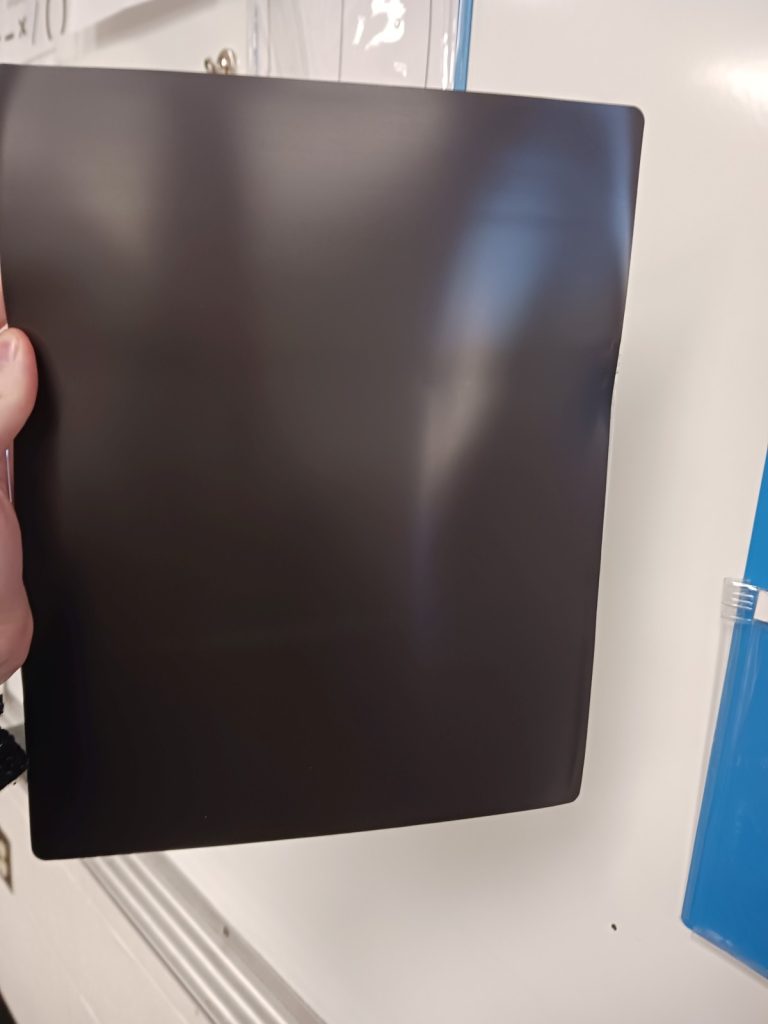
I used one of my magnetic clips to hang the instructions above the magnetic pouches full of problems.
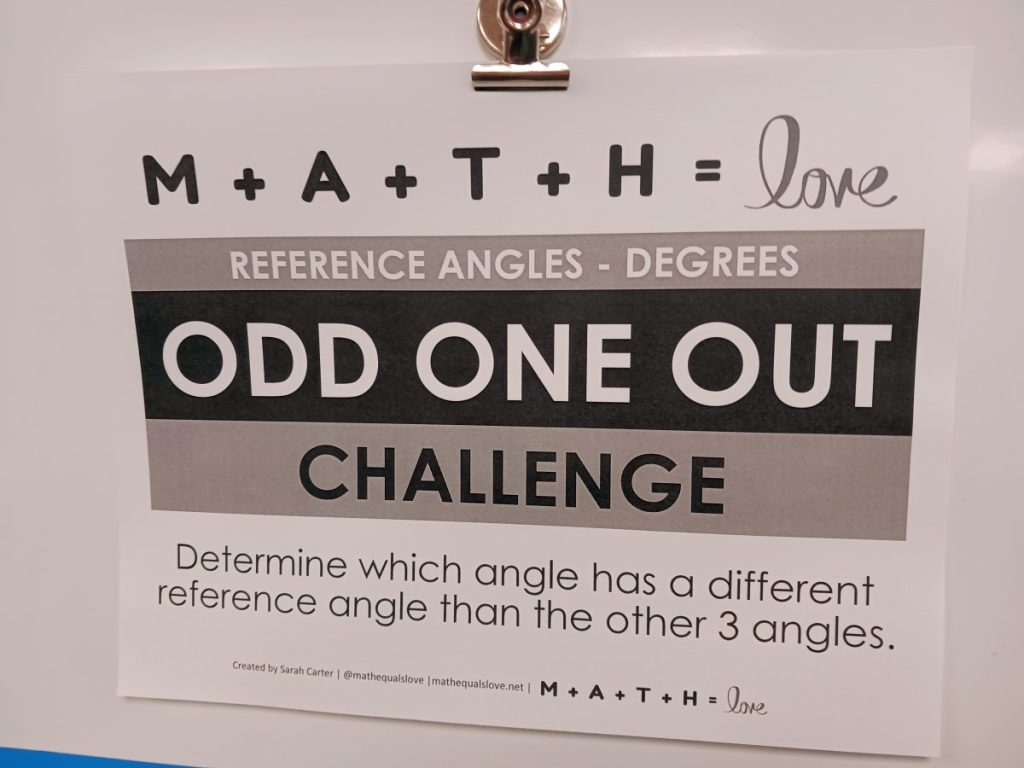
This sort of dry erase set-up is completely optional. You could definitely just hand the stacks of problems to students/groups. I just wanted to show you how I set up the activity in my own classroom.
How I Used the Activity
Since all the problems were posted at the front of the classroom, I had each group of students send a member up to grab a stack of cards.
The four different problem sets are all independent of one another, so it didn’t matter which color of cards that students chose to start with.
They brought the stack of cards back to their table where they worked together to find the reference angle of each angle in the stack. When groups had found the odd one out, they brought the stack of cards to my desk to check their answer.
If they were correct, I shuffled the group’s cards and sent them back to the front of the room to grab a different color of cards. If they were incorrect, I sent them back to their group to recalculate their reference angles.
This activity only took about five minutes to complete. It was a great activity to kick off class the day after we had learned about reference angles to make sure that everyone had mastered the concept before moving on to the next trig topic.
Reference Angles Worksheet
Don’t have time to cut apart cards to make a group activity? Would you rather have this activity in an easy-to-use worksheet format? I have got you covered!
This worksheet uses the exact same problems as the group activity shared above.
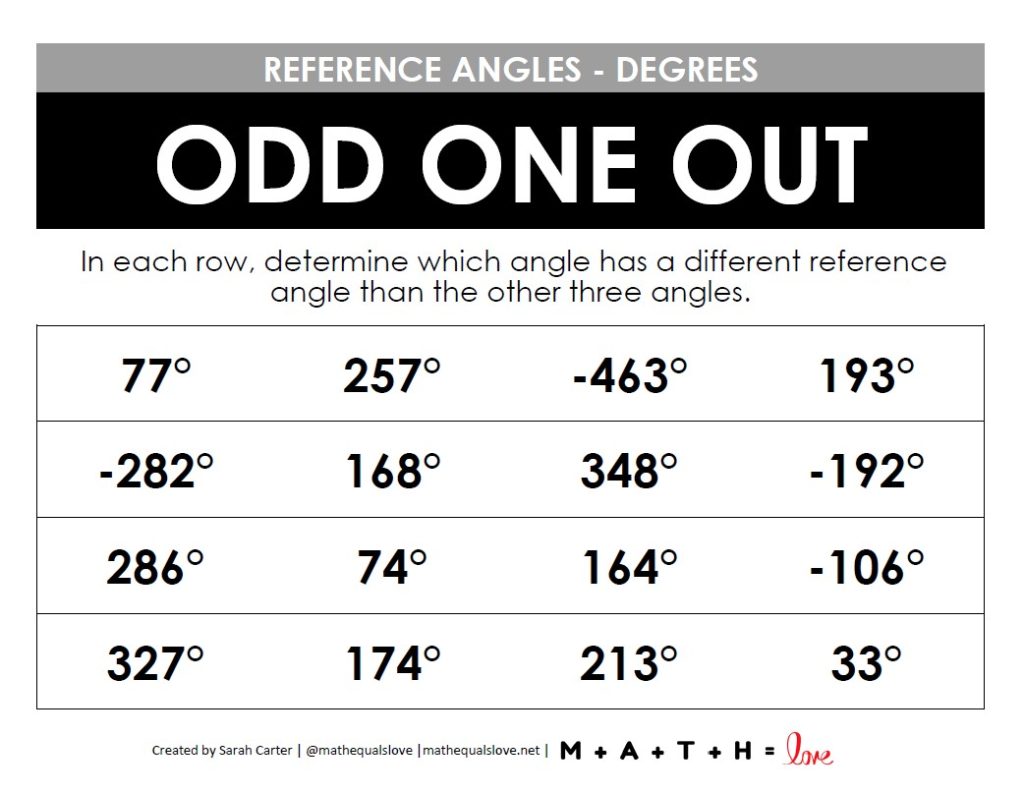
The worksheet has the same instructions as the odd one out activity: “In each row, determine which angle has a different reference angle than the other three angles.”
Puzzle Solutions
Puzzle solutions are available on a password-protected solution page. I do not openly post the puzzle answer keys because one of my goals as a resource creator is to craft learning experiences for students that are non-google-able. I want teachers to be able to use these puzzles in their classrooms without the solutions being found easily on the Internet.
Please email me at sarah@mathequalslove.net for the password to the answer key database featuring all of my printable puzzles and math worksheets. I frequently have students emailing me for the answer key, so please specify in your email what school you teach at and what subjects you teach. If you do not provide these details, I will not be able to send you the password.
Not a teacher? Go ahead and send me an email as well. Just let me know what you are using the puzzles for. I am continually in awe of how many people are using these puzzles with scouting groups, with senior adults battling dementia, or as fun activities in their workplace. Just give me enough details so I know you are not a student looking for answers to the puzzle that was assigned as their homework!

